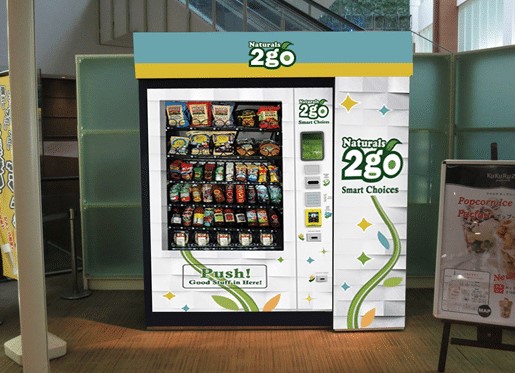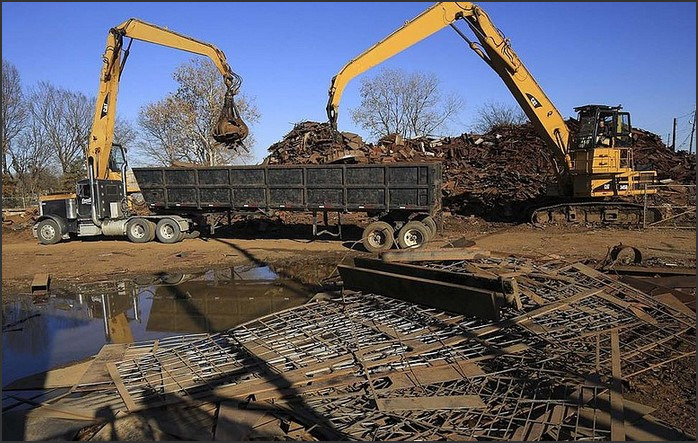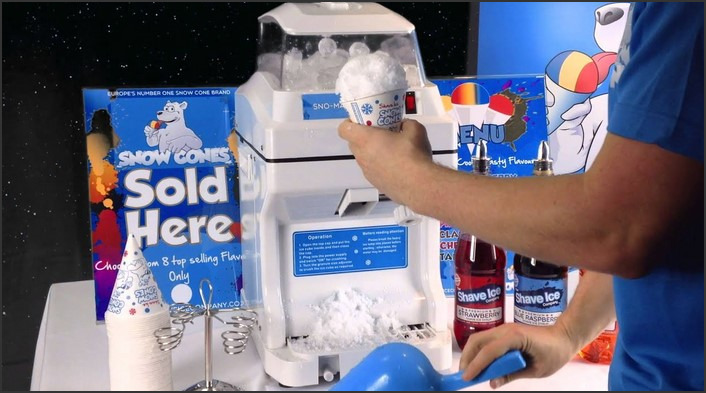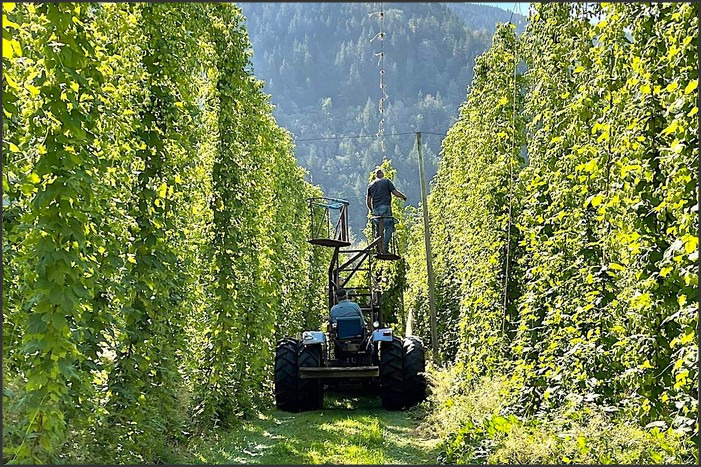Category Archives: Small Business
Discovering Baseball Cards of Rhode Island: A Collector’s Paradise

Source : https://i.ytimg.com
Baseball cards have long been a cherished collectible for enthusiasts and investors alike, offering a unique blend of nostalgia, history, and investment potential. For collectors, the hunt for rare cards can be a thrilling experience, and for those located in or around Rhode Island, the “Baseball cards of RI” offer a treasure trove of opportunities. Rhode Island, though small in size, has a rich baseball history and a thriving community of collectors. In this article, we will explore what makes the baseball cards of Rhode Island so special, where to find them, and why they hold value in today’s market.
The Rich Baseball History of Rhode Island
Rhode Island may not be home to Major League Baseball teams, but it has played an important role in the history of the sport, which has contributed to the legacy of baseball cards of RI. Many professional and semi-professional players hailed from Rhode Island, and the state boasts a strong presence in minor league baseball. This connection to the game makes the baseball cards of Rhode Island particularly valuable to collectors, as they often feature players who have made significant contributions to the sport.
Some notable figures from Rhode Island include famous players like Frank “Home Run” Baker, who was a Hall of Fame third baseman, and Dave McCarty, who played in Major League Baseball. These players, along with others from the state, have left their mark on baseball history, and their cards are highly sought after by collectors who wish to own a piece of that legacy.
In addition to individual players, Rhode Island is home to several local teams and ballparks that have contributed to the state’s baseball culture. The Pawtucket Red Sox, for example, has been an iconic minor league team in Rhode Island, producing countless players who went on to have significant careers in Major League Baseball. The connection between these players and their baseball cards continues to captivate collectors, particularly those interested in the nostalgia of minor league baseball and its place in Rhode Island’s sporting landscape.
Where to Find Baseball Cards of RI
For collectors looking to acquire baseball cards of RI, there are several avenues to explore. Whether you’re a seasoned collector or a beginner, finding rare and valuable cards can be an exciting journey.
Local Card Shops and Markets
Rhode Island is home to several local card shops that specialize in baseball cards and memorabilia. These shops often carry both modern and vintage cards, providing collectors with a broad selection to choose from. Visiting these shops is a great way to find rare pieces, especially if you’re looking for cards of local players or teams. Many shop owners are also knowledgeable about the history of Rhode Island baseball, and they can offer valuable insights into the significance of certain cards or players.
In addition to specialized stores, local flea markets and collectible shows are excellent places to find baseball cards of RI. These venues often attract a mix of casual collectors and serious enthusiasts, creating a dynamic marketplace where deals can be made. Events like the Rhode Island Sports Collectors Show are particularly popular for those looking to purchase, sell, or trade baseball cards, and they can be an ideal setting for meeting other collectors and learning more about the state’s unique baseball card culture.
Online Marketplaces
For those who may not live near Rhode Island or are looking for a wider selection of cards, online marketplaces like eBay, COMC, and Beckett Marketplace provide an extensive range of baseball cards from across the country. Collectors can search for specific players, teams, or card types, allowing them to locate the exact items they’re looking for. The benefit of online marketplaces is the ability to compare prices, find rare cards, and even access global collectors who may have Rhode Island-based cards in their collections.
Online marketplaces also give collectors the opportunity to sell cards from their own collections, making it easier to connect with other enthusiasts and expand their collections over time. Some online platforms even have grading services, allowing buyers to assess the condition of cards before purchasing.
Networking with Other Collectors
Another valuable resource for discovering baseball cards of RI is networking with fellow collectors. Many collectors enjoy exchanging cards or trading with others who share a similar passion for Rhode Island’s baseball heritage. Joining collector groups on social media platforms or local sports forums can help you connect with other individuals who are knowledgeable about the baseball cards of Rhode Island. These communities often host events, organize meetups, and offer advice on finding rare cards that may not be readily available in stores.
The Value of Baseball Cards of RI
One of the primary reasons collectors seek out baseball cards of RI is the potential for value. Like all collectibles, baseball cards can fluctuate in value based on factors such as player performance, rarity, and condition. The more limited the production of a card, the higher its potential value. For example, cards featuring Rhode Island-based players who went on to have successful careers in Major League Baseball or cards from the early 20th century tend to be highly prized.
Collectors should also keep in mind the condition of the card when assessing its value. Cards that are well-preserved, free from creases, discoloration, and other damage, will typically command higher prices. Some cards can even be graded by professional services such as PSA (Professional Sports Authenticator) or SGC (Sportscard Guaranty), which provides an official grade that helps determine a card’s value.
In addition to individual player cards, collectible memorabilia such as autographed cards, limited-edition sets, and event-specific items related to Rhode Island baseball can also hold considerable value. Limited runs of cards, such as those produced to commemorate a significant game or milestone in Rhode Island’s baseball history, can appeal to both collectors and investors alike.
Conclusion: A Rich and Thriving Collector’s Market
Baseball cards of RI offer collectors a unique opportunity to explore the intersection of sports, history, and community. From the notable players who have called Rhode Island home to the thriving local market of card shops and collectible events, Rhode Island stands out as a haven for baseball card enthusiasts. Whether you’re looking to build a collection based on local history or you’re searching for rare cards featuring iconic players, the baseball cards of Rhode Island offer something for every collector. With their historical significance, rarity, and connection to the local baseball culture, these cards are sure to remain a cherished and valuable part of the collecting world for years to come.
Naturals2Go Reviews: Exploring the World of Healthy Vending

Source : https://www.healthyyouvending.com
In recent years, the demand for healthier snack options has risen significantly, especially in the workplace and public spaces. People are becoming more health-conscious and are increasingly looking for nutritious choices when they’re on the go. This has created an opportunity for businesses to cater to this demand by offering healthy vending machine options. One of the companies leading the charge in this sector is Naturals2Go. In this article, we will explore Naturals2Go reviews, the benefits of investing in healthy vending, and why this business model has been gaining traction among entrepreneurs.
What is Naturals2Go?
Naturals2Go is a company that specializes in providing healthy vending machines stocked with nutritious snacks and beverages. Their vending machines are designed to offer an alternative to the traditional junk food typically found in most vending machines. The company offers a variety of products, including protein bars, organic snacks, nuts, fresh fruit, and other health-conscious food items. Naturals2Go aims to provide convenience without compromising on quality or health benefits.
The business model allows individuals to invest in vending machines and place them in high-traffic locations such as gyms, schools, office buildings, and hospitals. As more people become aware of the importance of maintaining a healthy lifestyle, there is an increasing demand for accessible, nutritious snacks. Naturals2Go has capitalized on this trend by creating a vending solution that meets both consumer needs and the growing desire for healthier food options.
Naturals2Go Reviews: Pros and Cons
Before considering an investment in a Naturals2Go vending machine, it’s important to take a closer look at what existing customers and business owners are saying about the company. Naturals2Go reviews are generally positive, but like any business model, there are some pros and cons to consider.
Pros of Naturals2Go:
- Health-Conscious Product Selection One of the standout features of Naturals2Go is its commitment to offering only healthy, nutritious products. With increasing awareness about the benefits of healthy eating, the company’s focus on offering organic and natural snacks is a significant selling point. Consumers are attracted to the idea of having access to snacks that align with their dietary goals, such as low sugar, high protein, and gluten-free options.
- Easy to Operate Naturals2Go makes the process of running a vending machine business relatively simple. The company provides vending machines that are easy to stock and maintain. Additionally, they offer remote monitoring systems, so owners can track inventory and sales in real-time, making it easier to stay on top of machine replenishment and adjust stock levels based on demand.
- Support and Training One of the most common positive aspects mentioned in Naturals2Go reviews is the level of support and training the company provides. They offer comprehensive training for new operators, ensuring that you understand how to run the business successfully. Additionally, they offer ongoing support to help with any issues that may arise, whether it’s machine maintenance or product selection.
- Scalability The Naturals2Go business model is scalable. As you gain experience and success with your initial vending machines, you can expand by adding more machines to different locations. This flexibility allows entrepreneurs to grow their business at their own pace and gradually increase their income potential.
Cons of Naturals2Go:
- Initial Investment Cost One of the downsides mentioned in some Naturals2Go reviews is the initial investment required to purchase the vending machines. While vending machines are relatively low-cost compared to other types of businesses, the upfront investment can still be significant, especially if you want to place multiple machines. This cost may be a barrier for those with limited startup capital.
- Location Limitations The success of your vending machine business largely depends on the location where your machines are placed. While high-traffic areas like gyms, office buildings, and schools are ideal, finding the right spot can be a challenge. In some cases, securing prime locations may involve negotiations with property owners or building managers, which could delay the process.
- Inventory Management While Naturals2Go provides remote monitoring to track inventory, it still requires owners to stay on top of product availability and stock levels. For those with multiple machines, managing inventory can become time-consuming, especially if machines are located in different areas. Additionally, demand can fluctuate, and some items may sell out faster than others, requiring frequent replenishment.
- Competition As healthy eating continues to trend, more companies are entering the healthy vending market. This can lead to increased competition, especially in high-demand areas. Entrepreneurs need to stay competitive by offering a variety of products, maintaining their machines, and ensuring that their vending machines are in prime locations to attract customers.
Why Choose Naturals2Go for Your Vending Business?
Despite the challenges, many entrepreneurs find Naturals2Go to be a rewarding business venture. The company’s focus on health and wellness aligns with current consumer preferences, and the demand for healthy vending options is only expected to grow in the coming years. By offering a range of nutritious snack options, Naturals2Go taps into a market that is actively seeking healthier alternatives.
Additionally, the convenience of vending machines means that customers can easily grab a snack on the go, whether they are in a hurry or need something quick and healthy. The simplicity of the business model, combined with the support and training provided by Naturals2Go, makes it a viable option for entrepreneurs looking to enter the vending industry.
Conclusion: Is Naturals2Go the Right Choice for You?
Naturals2Go reviews highlight both the benefits and challenges of investing in a healthy vending business. The company offers a strong business model with the potential for growth and success, especially given the increasing demand for healthy snacks. While there are initial costs and logistical challenges, the support and training provided by Naturals2Go make it an appealing option for entrepreneurs looking to enter the vending industry.
If you are passionate about promoting healthier food choices and are willing to put in the effort to manage and grow your business, Naturals2Go could be an excellent investment. By providing convenient access to healthy snacks, you will not only tap into a profitable market but also contribute to the health and wellness movement. As the world continues to prioritize healthier lifestyles, healthy vending is a business opportunity worth exploring.
Shine Bright: Jewelry Display Stands for Craft Show Success

Source : https://i0.wp.com
When it comes to exhibiting jewelry at craft shows, presentation is key. Potential customers are often drawn to jewelry based on how it is displayed. The right jewelry display stands for craft shows can make a significant difference in how your pieces are perceived and ultimately, how well your sales perform. These stands not only showcase your jewelry but also add a sense of elegance and organization to your booth. In this article, we will explore the importance of choosing the right jewelry display stands, tips for maximizing their effectiveness, and how to ensure your display stands out at the next craft show.
The Importance of Jewelry Display Stands
One of the first impressions a potential buyer has of your jewelry is based on how it is displayed. A cluttered or disorganized display can send the wrong message about the quality and value of your pieces. Jewelry display stands for craft shows serve as the foundation for how your jewelry is presented to customers. The right display stand can elevate your booth, create a sense of professionalism, and help you sell your creations effectively.
When selecting jewelry display stands for craft shows, consider the style of your jewelry. Are your pieces bold and modern, or do they have a more delicate, vintage feel? Understanding your jewelry’s aesthetic is essential when choosing the appropriate display. For instance, minimalist stands are perfect for contemporary designs, while ornate, antique-style stands can complement vintage or handmade jewelry. Your display should reflect your brand’s identity, helping to communicate the style and quality of your jewelry to potential buyers.
Moreover, jewelry display stands are not just about aesthetics. Functionality plays a crucial role in ensuring a smooth and efficient shopping experience. Stands that offer easy access to the pieces while keeping them securely in place can reduce the risk of damage. Additionally, a well-organized display allows customers to browse your jewelry effortlessly, which can lead to more purchases.
Types of Jewelry Display Stands for Craft Shows
There is a wide variety of jewelry display stands available, each designed for specific needs. Here are a few common types that can help you create a visually appealing and organized display.
1. Busts and Mannequins
Busts and mannequins are ideal for showcasing necklaces, earrings, and even rings. They are often used for displaying larger statement pieces, which can be difficult to present on flat surfaces. A bust can draw attention to your jewelry’s unique design, helping potential customers see how it looks when worn. For example, a necklace displayed on a bust will give customers a sense of scale and how it fits around the neck. This type of display is particularly effective for high-end or elaborate pieces.
2. Trays and Tables
Trays and tables are versatile options that can display multiple pieces in an organized way. Trays can be filled with earrings, rings, or bracelets, allowing customers to browse the variety of options quickly. Tables can hold multiple trays or small stands, creating an organized and easily accessible display. Using a mix of trays and tables gives customers a chance to see everything in your collection, encouraging them to linger and look more carefully at each item.
3. Tiers and Risers
Tiered displays and risers are perfect for adding dimension to your jewelry booth. By stacking jewelry on different levels, you create a sense of depth and draw attention to multiple pieces at once. Risers are especially useful for displaying a collection of rings or bracelets in a way that is easily viewable by customers from all angles. This type of display also allows you to group pieces by style, color, or material, which can help potential buyers navigate your collection with ease.
4. Wall Displays and Pegboards
If space is limited, wall displays or pegboards are an excellent way to maximize vertical space. These stands are ideal for hanging earrings, necklaces, or bracelets. Pegboards are particularly flexible because you can move hooks around to customize your display. Wall displays also add a professional touch and keep your booth looking clean and tidy. This setup can make your booth appear larger and more inviting while also organizing your jewelry in a way that is visually appealing.
Tips for Making Your Jewelry Display Stand Out
While selecting the right jewelry display stands for craft shows is important, how you arrange and decorate your display will also play a major role in attracting customers. Here are a few tips to help your display shine:
1. Lighting Matters
Good lighting is crucial in highlighting the beauty of your jewelry. Use focused lighting to illuminate your display stands, ensuring that your pieces catch the light in the best way possible. LED lights or spotlights can create a warm and inviting ambiance, making your jewelry sparkle. The right lighting can draw attention to key pieces and make them stand out from the rest of the display.
2. Organize Your Pieces by Type
Grouping similar pieces together can help customers quickly find what they are looking for. For example, place all earrings in one area, rings in another, and necklaces in a separate spot. This type of organization makes it easier for customers to browse, and it helps to avoid clutter.
3. Use Decorative Elements
Incorporating small decorative elements, such as flowers, fabric, or themed props, can help enhance the overall appearance of your display. However, be mindful not to overcrowd the display. The goal is to complement your jewelry, not overshadow it. A simple, clean display often works best.
4. Keep Your Display Clean and Tidy
A cluttered display can distract from the jewelry itself and may turn potential buyers away. Make sure your jewelry display stands are neatly arranged, and that each piece is clearly visible. Regularly clean your jewelry to keep it looking shiny and new. A well-maintained booth reflects positively on your brand and can create a more professional atmosphere.
Conclusion: Elevate Your Craft Show Presence
Choosing the right jewelry display stands for craft shows is an investment that can greatly enhance your booth’s success. The right display can highlight your jewelry’s beauty, create a welcoming atmosphere, and ultimately lead to higher sales. By selecting the appropriate jewelry display stands, organizing your pieces effectively, and paying attention to details such as lighting and decor, you can create an engaging and professional display that attracts customers. Remember, first impressions matter, and your jewelry deserves to shine bright at every craft show you attend.
Chicago Scrap Yards: Navigating Recycling and Metal Salvage

Source : https://wehco.media.clients.ellingtoncms.com
Chicago Scrap Yards are a crucial part of the city’s recycling and metal salvage operations. These facilities play a significant role in the collection, processing, and recycling of various types of scrap metals, contributing to environmental sustainability and the economy. They offer services to both individuals and businesses, accepting a wide range of materials from old vehicles to household appliances. Navigating through these scrap yards can be a complex process due to the variety of metals accepted and the fluctuating market prices. However, understanding their operations can lead to profitable and eco-friendly disposal of scrap metal.
Understanding the Intricacies of Chicago Scrap Yards: A Comprehensive Guide to Recycling and Metal Salvage
Chicago, a city renowned for its architectural prowess and industrial heritage, is also home to a thriving network of scrap yards. These establishments play a crucial role in the city’s recycling efforts and metal salvage operations. Understanding the intricacies of Chicago scrap yards can provide valuable insights into the city’s commitment to sustainability and resource conservation.
Scrap yards in Chicago are essentially recycling centers that specialize in the collection, processing, and resale of scrap metal. They serve as a critical link in the recycling chain, transforming discarded metal items into valuable raw materials for various industries. The process begins with individuals or businesses selling their scrap metal to the yards. This could range from old appliances and vehicles to construction waste and industrial by-products.
Once the scrap metal arrives at the yard, it undergoes a meticulous sorting process. Different types of metals, such as iron, steel, aluminum, copper, and brass, are separated based on their properties and potential uses. This is a crucial step as the value of scrap metal is largely determined by its type and quality. The sorted metals are then prepared for recycling through a series of processes including shredding, shearing, and baling.
The recycled metal is then sold to manufacturers who use it to produce a wide range of products, from cars and appliances to building materials and packaging. This cycle of collection, recycling, and reuse not only conserves natural resources but also reduces energy consumption and greenhouse gas emissions associated with mining and metal production.
Navigating the world of Chicago scrap yards can be a daunting task, especially for first-time sellers. However, with a basic understanding of how scrap metal pricing works, one can make informed decisions and potentially earn a significant return. Prices fluctuate based on market conditions and the type of metal, with precious metals like copper and brass typically fetching higher prices than common metals like steel and aluminum. It’s also worth noting that clean, uncontaminated metal generally commands a higher price than mixed or dirty metal.
In addition to understanding pricing, it’s also important to be aware of the legal aspects of selling scrap metal. Chicago, like many other cities, has strict regulations in place to prevent metal theft. Sellers are required to provide identification and, in some cases, proof of ownership for the scrap metal they’re selling. Scrap yards are also required to keep detailed records of their transactions to aid law enforcement in tracking stolen metal.
Chicago’s scrap yards are more than just repositories for discarded metal. They are vital cogs in the city’s recycling machine, contributing to environmental sustainability and economic growth. By understanding their operations and the broader context in which they operate, one can appreciate the value they bring to the city and the planet. Whether you’re a homeowner looking to dispose of an old appliance, a contractor with construction waste, or a business with industrial scrap, Chicago’s scrap yards offer a responsible and potentially profitable solution for your metal recycling needs.In conclusion, Chicago Scrap Yards play a crucial role in recycling and metal salvage operations. They provide an efficient system for the disposal of scrap metal, contributing to environmental sustainability by reducing waste and promoting the reuse of materials. Navigating these yards can be complex due to the vast variety of metals accepted and the regulations surrounding their disposal. However, with proper understanding and guidance, they serve as valuable resources for individuals and businesses in Chicago.
Xeriscape Design Templates: Creating Water-Efficient Landscapes

Source : https://i.shgcdn.com
Xeriscape Design Templates are comprehensive guides used in the creation of water-efficient landscapes. These templates provide a blueprint for designing gardens and yards that require minimal irrigation, thus conserving water. Xeriscape designs incorporate drought-tolerant plants and efficient irrigation systems, making them an environmentally friendly choice for landscaping. They are particularly beneficial in areas prone to water scarcity or drought. The templates offer a variety of design options, from simple to complex, to suit different aesthetic preferences and site conditions.
Exploring Xeriscape Design Templates: A Guide to Creating Water-Efficient Landscapes
Xeriscape design templates are gaining popularity among homeowners and landscape designers alike, as they offer a practical and aesthetically pleasing solution to the growing concern of water conservation. Xeriscaping, a term coined by the Denver Water Department in the 1980s, refers to a landscaping method that minimizes water use by incorporating drought-tolerant plants and efficient irrigation systems. This approach not only conserves water but also reduces maintenance requirements, making it an ideal choice for those seeking a sustainable and low-maintenance landscape.
The first step in creating a xeriscape is to understand the principles that guide its design. These include planning and design, soil improvement, efficient irrigation, appropriate plant selection, use of mulches, and appropriate maintenance. By adhering to these principles, one can create a landscape that is both beautiful and water-efficient.
Planning and design are crucial in xeriscaping. A well-thought-out design considers the local climate, soil type, and sun exposure, ensuring that the landscape can thrive with minimal water input. It also takes into account the existing features of the site, such as slopes and existing vegetation, to make the most of the natural environment.
Soil improvement is another key aspect of xeriscaping. Since many drought-tolerant plants prefer well-drained soil, amending the soil with organic matter can improve its structure and water-holding capacity. This not only promotes plant health but also reduces water runoff, further contributing to water conservation.
Efficient irrigation is central to xeriscaping. Drip irrigation systems, which deliver water directly to the plant’s root zone, are often used in xeriscapes to minimize water waste. These systems can be automated to water at optimal times, such as early morning or late evening, to reduce evaporation.
Plant selection is perhaps the most visible aspect of xeriscaping. Drought-tolerant plants, often native to the area, are chosen for their ability to thrive with minimal water. These plants come in a variety of shapes, sizes, and colors, allowing for a diverse and visually appealing landscape.
Mulches are used in xeriscaping to reduce evaporation, suppress weeds, and moderate soil temperature. Organic mulches, such as wood chips or compost, also improve soil fertility as they decompose.
Lastly, appropriate maintenance ensures the longevity of the xeriscape. While xeriscapes require less maintenance than traditional landscapes, tasks such as pruning, weeding, and occasional watering are still necessary to keep the landscape looking its best.
Xeriscape design templates serve as a valuable tool in implementing these principles. These templates provide a visual guide, showing how different elements of the xeriscape – from plant placement to irrigation systems – can be arranged for optimal water efficiency. They also offer inspiration, showcasing the variety of styles and aesthetics that can be achieved with xeriscaping.
In conclusion, xeriscape design templates offer a practical and sustainable solution to landscape design. By adhering to the principles of xeriscaping and utilizing these templates, homeowners and landscape designers can create beautiful, water-efficient landscapes that contribute to water conservation and sustainability.Xeriscape Design Templates are instrumental in creating water-efficient landscapes. They provide a blueprint for arranging plants in a manner that reduces water usage, making them an excellent tool for sustainable and environmentally-friendly landscaping. These templates contribute significantly to water conservation efforts, especially in arid and semi-arid regions, by promoting the use of drought-tolerant plants and efficient irrigation systems. Therefore, Xeriscape Design Templates are a valuable resource for creating aesthetically pleasing landscapes that are also sustainable and water-efficient.
Rent Out Garage Space: A Guide to Earning Extra Income

Source : https://peerstorage.co
Rent Out Garage Space: A Guide to Earning Extra Income is a comprehensive manual that provides detailed information on how to transform unused garage space into a source of additional revenue. It covers various aspects such as legal considerations, pricing strategies, marketing techniques, and maintenance tips. This guide is designed to help homeowners navigate the process of renting out their garage space, offering practical advice and insights to maximize profitability and ensure a smooth rental experience.
Maximizing Your Property: How to Rent Out Your Garage Space for Extra Income
Renting out garage space has emerged as a lucrative way to earn extra income. This innovative approach to maximizing property usage is gaining popularity among homeowners who have unused or underutilized garage spaces. The concept is simple: if you have a garage that you’re not using to its full potential, you can rent it out to someone who needs the space. This could be for storage, as a workshop, or even as a small business location.
The first step in this process is to assess your garage space. Consider its size, condition, and accessibility. A larger, well-maintained garage in a convenient location is likely to attract more potential renters and command a higher rental fee. It’s also important to consider what types of activities the space is suitable for. For instance, a garage with good ventilation and lighting may be ideal for someone looking for a workshop, while a secure, weatherproof space could be perfect for storage.
Once you’ve assessed your garage, the next step is to prepare it for rental. This may involve cleaning, making necessary repairs, and possibly making improvements to make the space more appealing to potential renters. For example, installing shelving or a workbench could make your garage more attractive to someone looking for a workshop space.
Setting a competitive rental price is another crucial aspect of this process. Research the local market to understand what similar spaces are renting for. Factors such as size, location, and the condition of the space will all influence the rental price. It’s also important to consider the potential renter’s perspective. What are they likely to be willing to pay for the convenience and utility of your garage space?
Marketing your garage space is the next step. There are several online platforms where you can list your space for rent. These platforms allow you to reach a wide audience of potential renters. Be sure to provide a detailed description of the space, including its size, location, and any special features. High-quality photos can also help to attract potential renters.
Once you’ve found a potential renter, it’s important to have a rental agreement in place. This should outline the terms of the rental, including the rental fee, the duration of the rental, and any rules or restrictions. It’s also a good idea to have a security deposit to cover any potential damages.
Renting out your garage space can be a great way to earn extra income, but it’s important to approach it with a business mindset. This means being professional, setting fair and competitive prices, and ensuring that you and your renter are clear on the terms of the rental.
In conclusion, renting out your garage space is an innovative way to maximize your property and earn extra income. By assessing your space, preparing it for rental, setting a competitive price, marketing effectively, and having a solid rental agreement in place, you can turn your underutilized garage into a profitable asset. This approach not only provides a financial benefit but also contributes to a more efficient use of resources, aligning with the growing trend towards a sharing economy.Renting out garage space can be a viable and profitable way to earn extra income. It provides a solution for those seeking storage or parking space, while allowing property owners to monetize their unused areas. However, it’s important to consider factors such as local regulations, security, insurance, and potential impact on property value. Overall, with proper planning and management, renting out garage space can be a beneficial venture.
Garage Business Ventures: Transforming Your Space into a Profitable Venture

Source : https://stepbystepbusiness.com
Garage Business Ventures: Transforming Your Space into a Profitable Venture is a comprehensive guide that provides insights into how to convert unused garage spaces into profitable businesses. It explores various business ideas that can be implemented in a garage, from workshops and studios to retail stores and small-scale manufacturing units. The guide also offers practical advice on business planning, legal requirements, marketing strategies, and financial management. It aims to inspire and equip individuals with the necessary knowledge and skills to start their own garage business ventures, thereby promoting entrepreneurship and contributing to local economies.
Maximizing Profits: How to Transform Your Garage into a Successful Business Venture
Garage business ventures are an increasingly popular trend, offering a unique opportunity to transform underutilized space into a profitable enterprise. With the right approach, your garage can become a successful business venture, maximizing profits and providing a significant return on investment. This article will guide you through the process of transforming your garage into a thriving business.
The first step in this transformation is to identify a viable business idea that aligns with your skills, interests, and market demand. This could range from a home-based manufacturing unit, a repair shop, a fitness studio, or even an art gallery. The possibilities are endless, but the key is to find a niche that is both profitable and sustainable.
Once you have identified your business idea, the next step is to plan your space effectively. This involves assessing the size of your garage and determining how best to utilize it. For instance, if you’re planning to start a fitness studio, you’ll need to consider the placement of equipment, mirrors, and other necessary amenities. Similarly, if you’re planning to start a repair shop, you’ll need to consider the layout of your workbench, tools, and storage areas.
In addition to planning your space, it’s also important to ensure that your garage is suitable for your chosen business. This may involve making certain modifications or upgrades, such as improving ventilation, installing additional lighting, or even adding insulation for temperature control. It’s also crucial to check local zoning laws and regulations to ensure that your business is compliant.
Once your space is ready, the next step is to invest in the necessary equipment and supplies. This will vary depending on the nature of your business, but it’s important to budget carefully and invest wisely. Remember, the goal is to maximize profits, so it’s crucial to keep costs low without compromising on quality.
Marketing is another crucial aspect of transforming your garage into a successful business venture. This involves creating a strong brand identity, building a robust online presence, and leveraging various marketing strategies to attract customers. Social media platforms, local directories, and word-of-mouth referrals can all be effective ways to promote your business.
Customer service is also key to the success of your garage business venture. This involves not only providing high-quality products or services but also ensuring that your customers have a positive experience. This can be achieved by being responsive to customer inquiries, resolving issues promptly, and going the extra mile to exceed customer expectations.
Finally, it’s important to continually evaluate and adjust your business strategy based on market trends and customer feedback. This will enable you to stay competitive and ensure the long-term success of your garage business venture.
In conclusion, transforming your garage into a successful business venture involves careful planning, strategic investment, effective marketing, exceptional customer service, and continual evaluation. With the right approach, your garage can become more than just a storage space; it can become a profitable enterprise that provides a significant return on investment. So why wait? Start planning your garage business venture today and unlock the potential of your underutilized space.In conclusion, transforming a garage space into a profitable venture is a viable business strategy. It offers an opportunity to utilize unused space, reduce startup costs, and provides flexibility. With the right business idea, planning, and execution, a garage business venture can become a successful and profitable enterprise.
Starting a Solar Farm: Harnessing the Power of Renewable Energy

Source : https://coldwellsolar.com
Starting a Solar Farm: Harnessing the Power of Renewable Energy is an insightful exploration into the world of sustainable energy production. It delves into the process of establishing a solar farm, a large-scale application of solar photovoltaic (PV) panels to generate green, clean energy from the sun. This introduction provides a comprehensive guide on the benefits of solar farms, the technology behind it, the investment and planning required, and the potential challenges one might face. It aims to equip readers with the knowledge and understanding needed to venture into this promising field of renewable energy.
The Comprehensive Guide to Starting a Solar Farm: Harnessing the Power of Renewable Energy
Starting a solar farm is an innovative and sustainable business venture that harnesses the power of renewable energy. As the world continues to grapple with the effects of climate change, the demand for clean, renewable energy sources is on the rise. Solar farms, which are large-scale photovoltaic systems, are becoming increasingly popular as they offer a viable solution to reducing carbon emissions and promoting energy independence.
The first step in starting a solar farm is conducting a feasibility study. This involves assessing the suitability of the proposed site for solar energy production. Factors such as the amount of sunlight the area receives, the slope and orientation of the land, and the proximity to power lines and grids are all crucial considerations. Additionally, it’s important to evaluate the local market demand for solar energy and the potential return on investment.
Once the feasibility study is complete, the next step is to secure the necessary permits and approvals. This process can be complex and time-consuming, as it involves complying with local zoning laws, environmental regulations, and building codes. It’s advisable to engage the services of a professional consultant or legal expert to navigate through this process.
Securing financing is another critical aspect of starting a solar farm. The initial investment required can be substantial, given the cost of purchasing or leasing land, procuring solar panels, and installing the necessary infrastructure. However, there are various financing options available, including bank loans, grants, and tax incentives. It’s also worth exploring partnerships with energy companies or investors who are keen on investing in renewable energy projects.
Once the financing is in place, the next step is to design and construct the solar farm. This involves selecting the right type of solar panels, determining the optimal layout for maximum sunlight exposure, and installing the necessary equipment such as inverters and transformers. It’s crucial to engage a reputable solar installation company to ensure the project is executed to the highest standards.
After the solar farm is operational, ongoing maintenance and monitoring are required to ensure optimal performance. This includes regular cleaning of the solar panels, checking the electrical connections, and monitoring the system’s output. It’s also important to have a contingency plan in place for any potential issues, such as equipment failure or extreme weather conditions.
Starting a solar farm is not just a profitable business venture, but also a significant contribution to the global effort to combat climate change. By harnessing the power of the sun, solar farms provide a clean, renewable source of energy that reduces our reliance on fossil fuels and promotes a sustainable future.
In conclusion, starting a solar farm involves a series of steps, from conducting a feasibility study to securing financing, designing and constructing the farm, and maintaining and monitoring its performance. Despite the challenges, the rewards are manifold, both in terms of financial returns and the positive impact on the environment. As the world continues to transition towards renewable energy, solar farms represent a promising and sustainable solution.Starting a solar farm to harness the power of renewable energy is a viable and sustainable venture. It offers significant environmental benefits by reducing carbon emissions and dependence on fossil fuels. It also provides economic advantages through job creation, energy cost savings, and potential income generation from excess power production. However, it requires substantial initial investment, careful planning, and compliance with regulatory requirements. Despite these challenges, the long-term benefits of solar farms make them a promising solution for future energy needs.
Commercial Ice Shaver Machines: Cool Profits in the Shaved Ice Business

Source : https://i.ytimg.com
Commercial Ice Shaver Machines are essential equipment in the shaved ice business, providing the ability to transform large ice blocks or cubes into finely shaved ice. These machines are designed for high-volume production, making them ideal for commercial use in places like food trucks, restaurants, and carnivals. The shaved ice produced is used in a variety of refreshing treats, including snow cones, slushies, and other icy desserts. With a commercial ice shaver machine, businesses can efficiently meet customer demand, especially during hot weather, leading to cool profits.
Maximizing Your Earnings with Commercial Ice Shaver Machines: Cool Profits in the Shaved Ice Business
The shaved ice business is a lucrative venture that has been gaining popularity over the years. This is largely due to the increasing demand for refreshing treats, especially during the hot summer months. One of the key elements that contribute to the success of this business is the use of commercial ice shaver machines. These machines are designed to produce finely shaved ice, which is the primary ingredient in creating a variety of delightful and refreshing treats.
Commercial ice shaver machines are a significant investment, but they can yield high returns if used effectively. These machines are designed to be efficient, reliable, and durable, making them ideal for businesses that require high-volume production. They are capable of shaving large quantities of ice in a short period, which is crucial in meeting the high demand during peak hours.
To maximize your earnings in the shaved ice business, it is essential to choose a commercial ice shaver machine that suits your business needs. There are various models available in the market, each with its unique features and capabilities. Some machines are designed for high-volume production, while others are more suitable for small-scale operations. Therefore, it is crucial to assess your business needs and choose a machine that can meet these requirements.
In addition to choosing the right machine, it is also important to maintain it properly. Regular maintenance can prolong the lifespan of the machine and ensure its optimal performance. This includes cleaning the machine regularly to prevent the buildup of ice and other debris, which can affect its efficiency. It is also advisable to have the machine serviced by a professional regularly to ensure that all its components are in good working condition.
Another factor that can significantly impact your earnings is the quality of the ice used. It is important to use high-quality ice that can produce a smooth and fluffy texture when shaved. This can greatly enhance the taste and appeal of your products, attracting more customers and increasing sales. Therefore, it is advisable to invest in a good ice maker or source your ice from a reliable supplier.
Pricing is also a crucial factor in maximizing your earnings. It is important to price your products competitively to attract more customers. However, it is also important to ensure that the price covers the cost of production and allows for a reasonable profit margin. Therefore, it is advisable to conduct market research to determine the average price of shaved ice products in your area and price your products accordingly.
In conclusion, commercial ice shaver machines play a crucial role in the success of the shaved ice business. They are a significant investment, but they can yield high returns if used effectively. By choosing the right machine, maintaining it properly, using high-quality ice, and pricing your products competitively, you can maximize your earnings and enjoy cool profits in the shaved ice business.Commercial Ice Shaver Machines play a crucial role in the profitability of the shaved ice business. Their efficiency, reliability, and ability to produce high-quality shaved ice significantly contribute to the business’s success. Therefore, investing in a high-quality commercial ice shaver machine can lead to cool profits in the shaved ice business.
Harvesting Hops: A Guide to Starting a Hop Field Business

Source : https://www.bpmcdn.com
Harvesting Hops: A Guide to Starting a Hop Field Business is a comprehensive manual that provides an in-depth understanding of the hop farming industry. It covers all aspects of starting and managing a hop field business, from understanding the plant’s biology, selecting the right variety for specific climates, to the actual process of planting, nurturing, and harvesting hops. The guide also delves into the business side of things, discussing market trends, financial planning, and strategies for successful selling. It is an essential resource for anyone considering venturing into the lucrative yet challenging world of hop farming.
Harvesting Hops: A Guide to Starting a Hop Field Business
Harvesting hops is a unique and potentially lucrative business venture that has gained popularity in recent years, particularly with the rise of craft breweries. Hops, the flowers of the hop plant, are a key ingredient in beer production, providing the characteristic bitterness that balances the sweetness of the malt. Starting a hop field business can be a rewarding endeavor, but it requires careful planning, a deep understanding of the crop, and a commitment to hard work.
The first step in starting a hop field business is selecting the right location. Hops thrive in specific climates and soil conditions. They prefer a temperate climate with plenty of sunlight and well-drained, fertile soil. The ideal pH for hop soil is between 6.0 and 7.5. It’s also important to consider the availability of water, as hops require a significant amount of irrigation during the growing season.
Once the location has been chosen, the next step is to prepare the land for planting. This involves clearing the land of any debris, tilling the soil, and setting up a trellis system for the hops to climb as they grow. Hops are perennial plants that can grow up to 25 feet in a single season, so a sturdy trellis system is essential.
The selection of hop varieties is another crucial aspect of starting a hop field business. There are numerous varieties of hops, each with its own unique flavor and aroma profile. The choice of variety should be guided by the demands of the local market and the preferences of the breweries you plan to supply. It’s advisable to start with a few varieties and gradually expand as you gain experience and understand the market better.
Planting usually takes place in the spring, with hop rhizomes being planted about 3 feet apart in rows that are 7 to 8 feet apart. Careful attention should be paid to pest and disease management to ensure a healthy crop. Hops are susceptible to several pests and diseases, including aphids, mildew, and various types of rot. Regular monitoring and appropriate interventions can help keep these threats at bay.
Harvesting typically occurs in late summer or early fall, depending on the variety and local climate conditions. The hops are ready to harvest when the cones are dry and papery to the touch, and the lupulin – the yellow powder inside the cones that gives beer its bitterness – is abundant and aromatic. The harvested hops are then dried, usually in a kiln, before being packaged for sale.
Starting a hop field business is not without its challenges. It requires a significant upfront investment in land, equipment, and labor. The market can be unpredictable, with fluctuations in demand and price. However, with careful planning, a commitment to quality, and a strong relationship with local breweries, it can be a profitable and rewarding business.
In conclusion, starting a hop field business involves more than just planting and harvesting hops. It requires a deep understanding of the crop, careful planning, and a commitment to hard work. But for those with a passion for agriculture and a love of beer, it can be a rewarding venture that combines the best of both worlds.Harvesting Hops: A Guide to Starting a Hop Field Business provides comprehensive information on starting a hop field business. It covers all the necessary aspects such as the initial investment, selection of land, planting and care of hops, harvesting techniques, and marketing strategies. The guide emphasizes the importance of understanding the market demand, potential return on investment, and the challenges involved in the business. It is a valuable resource for anyone considering entering the hop farming industry.





